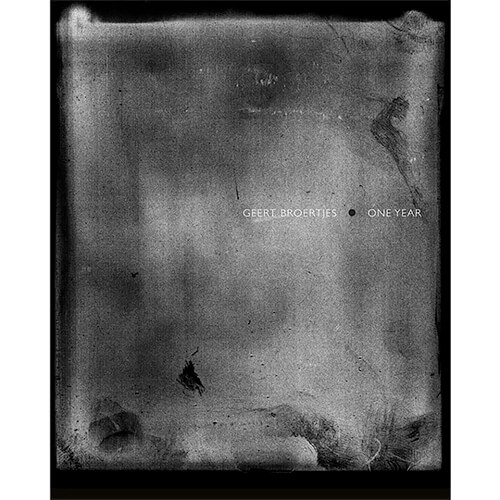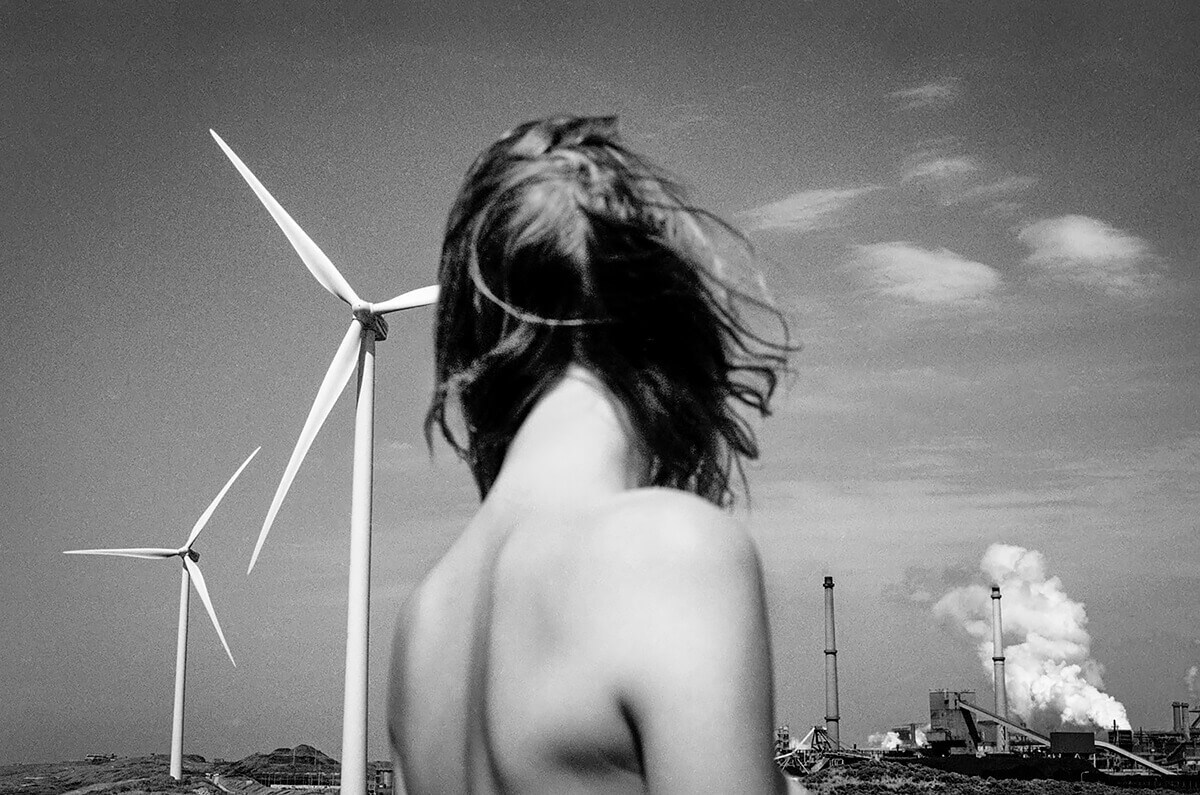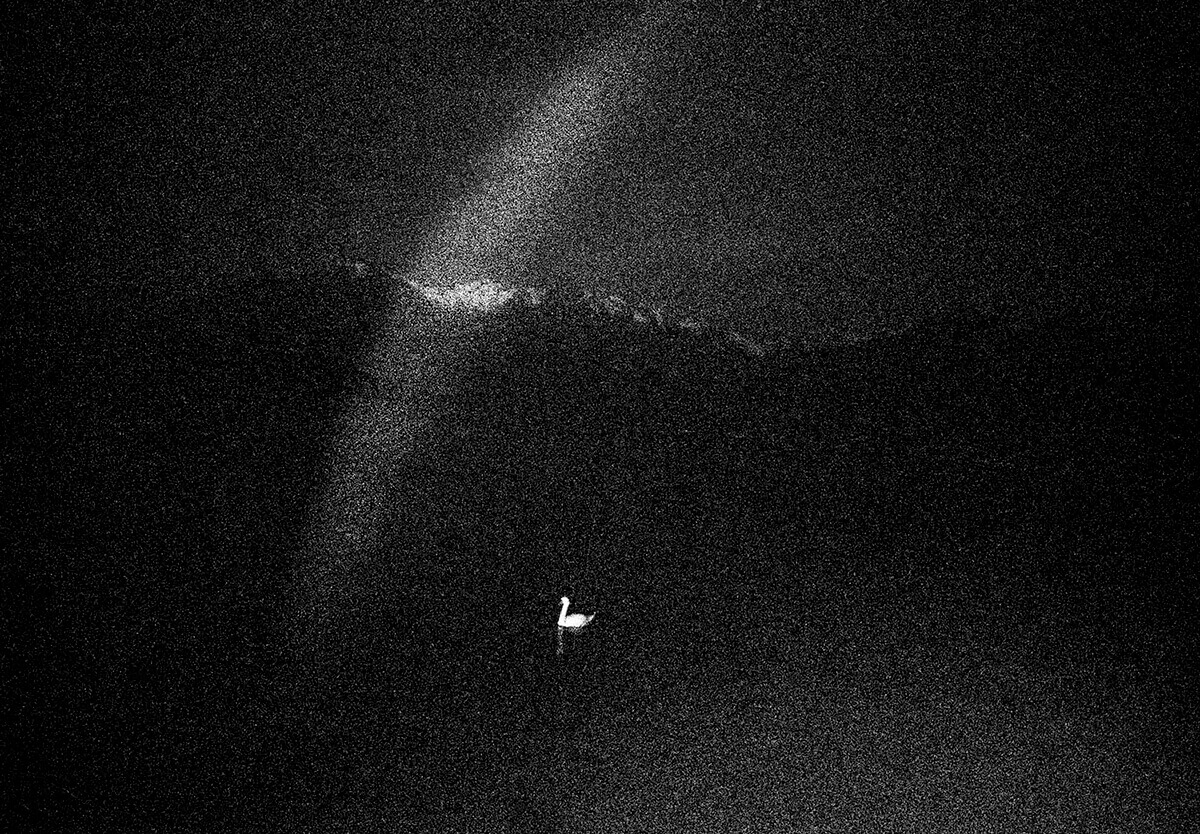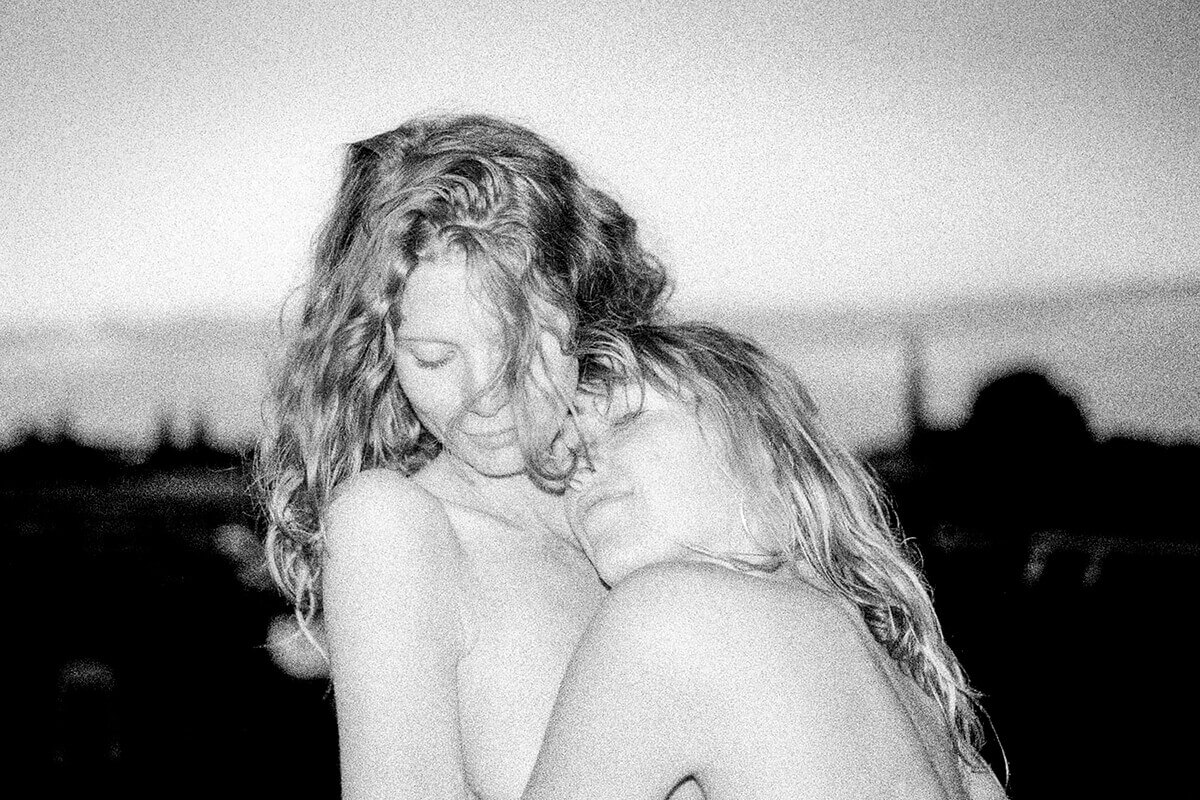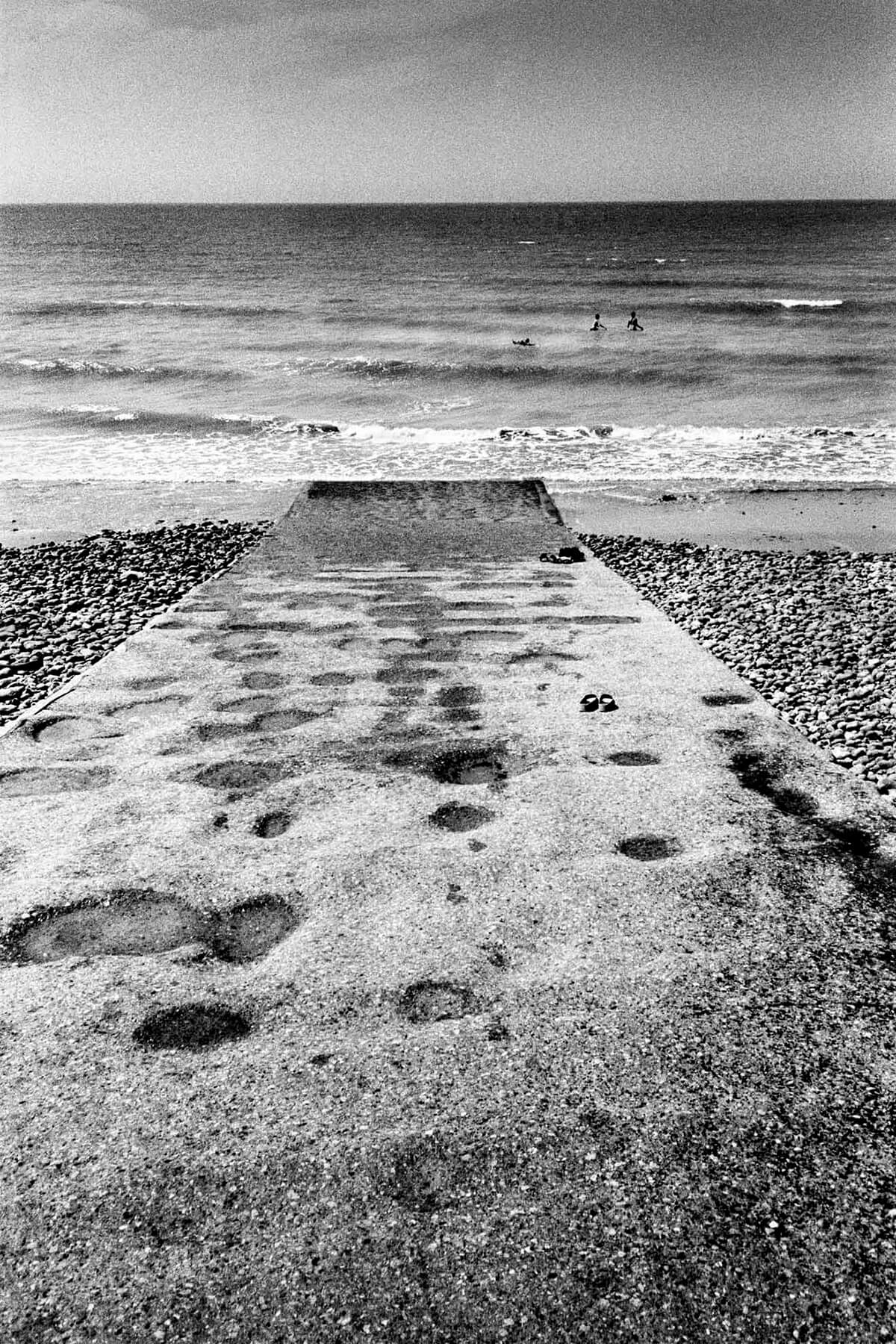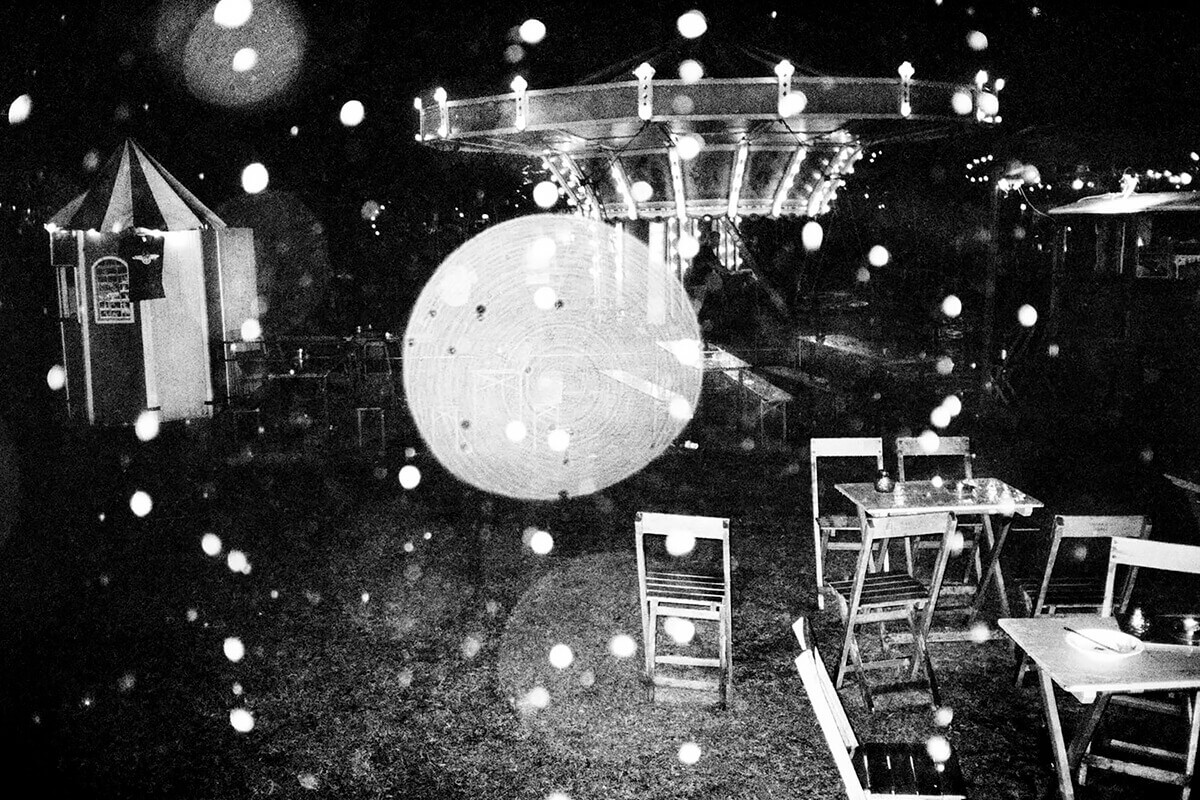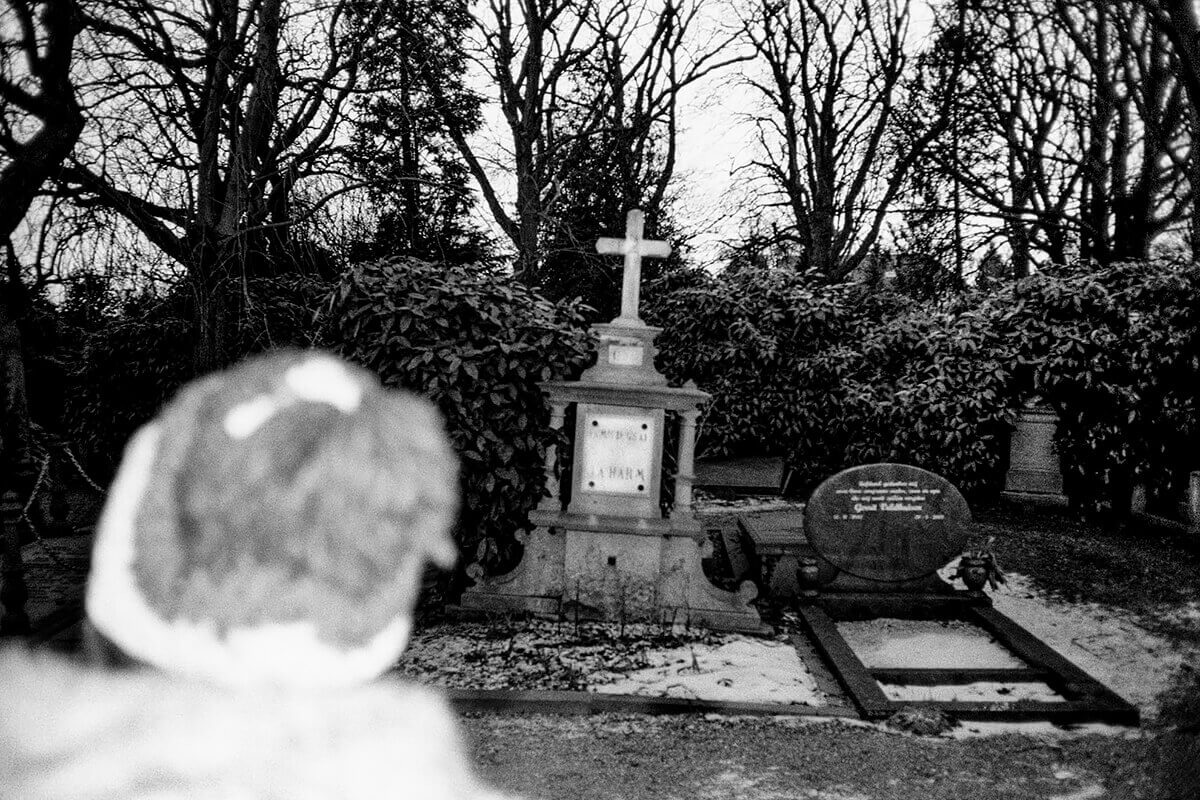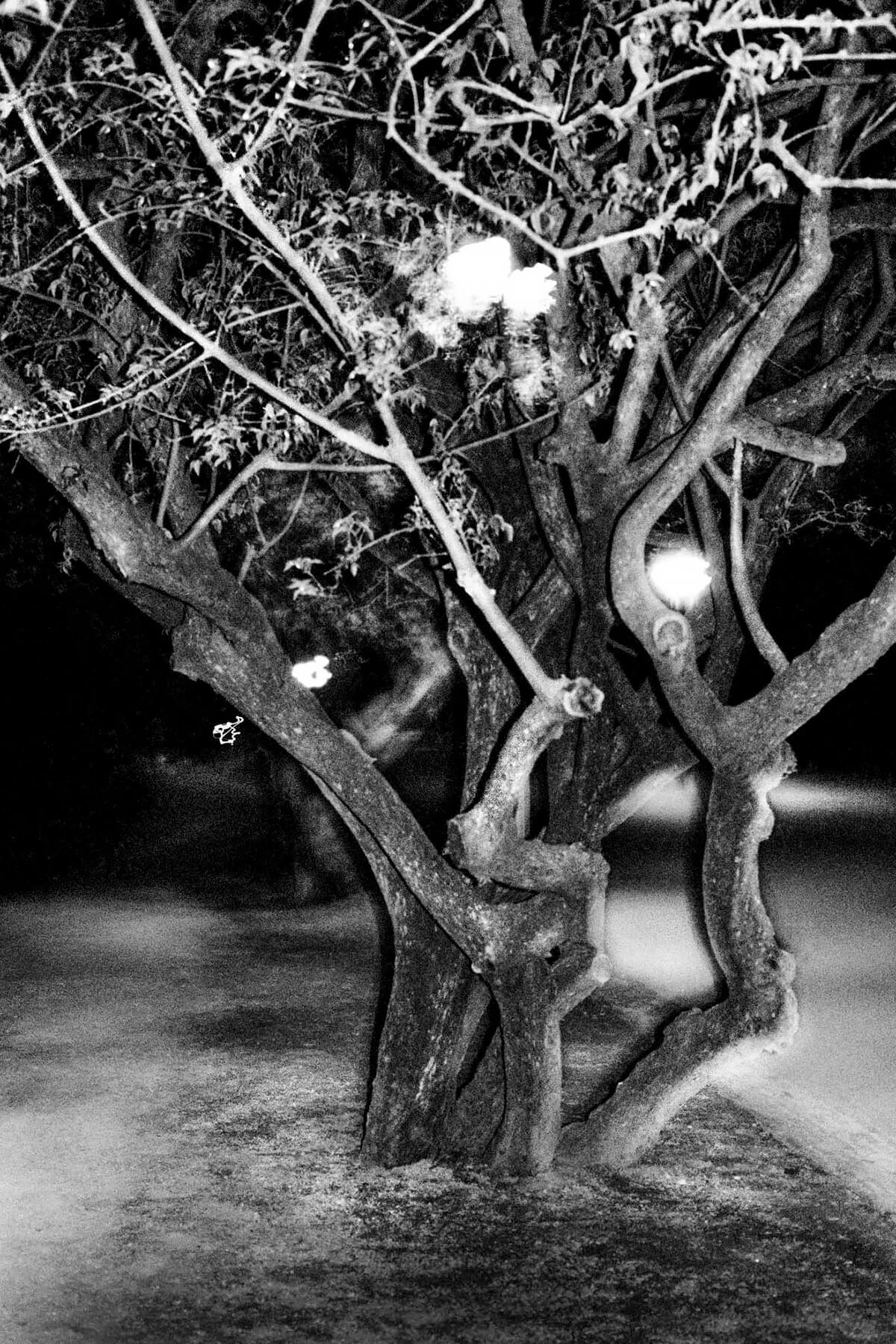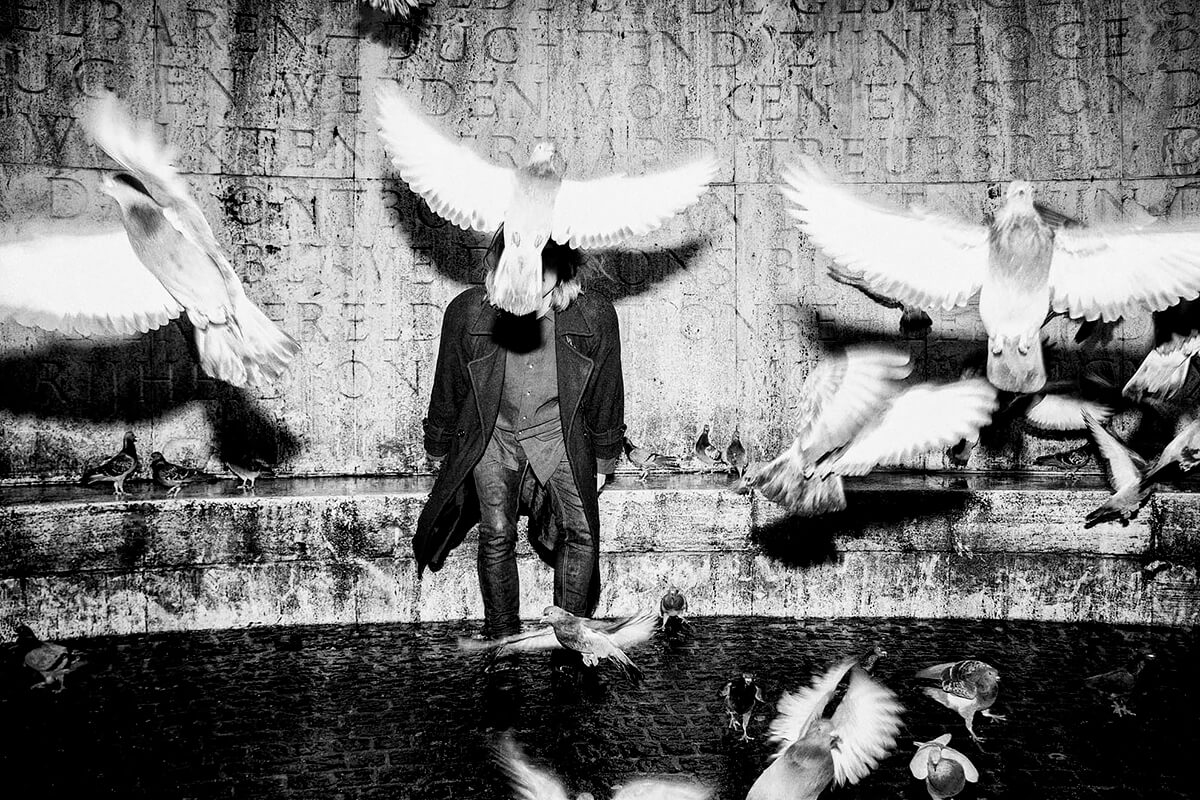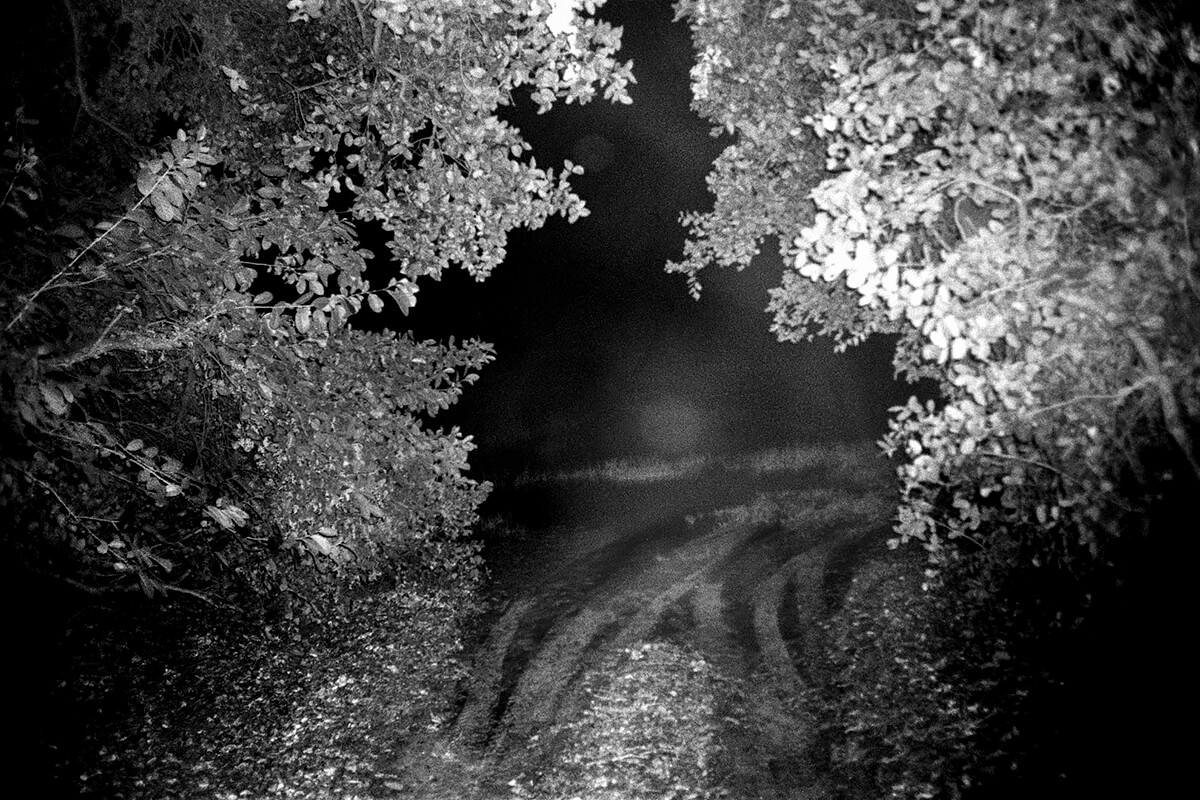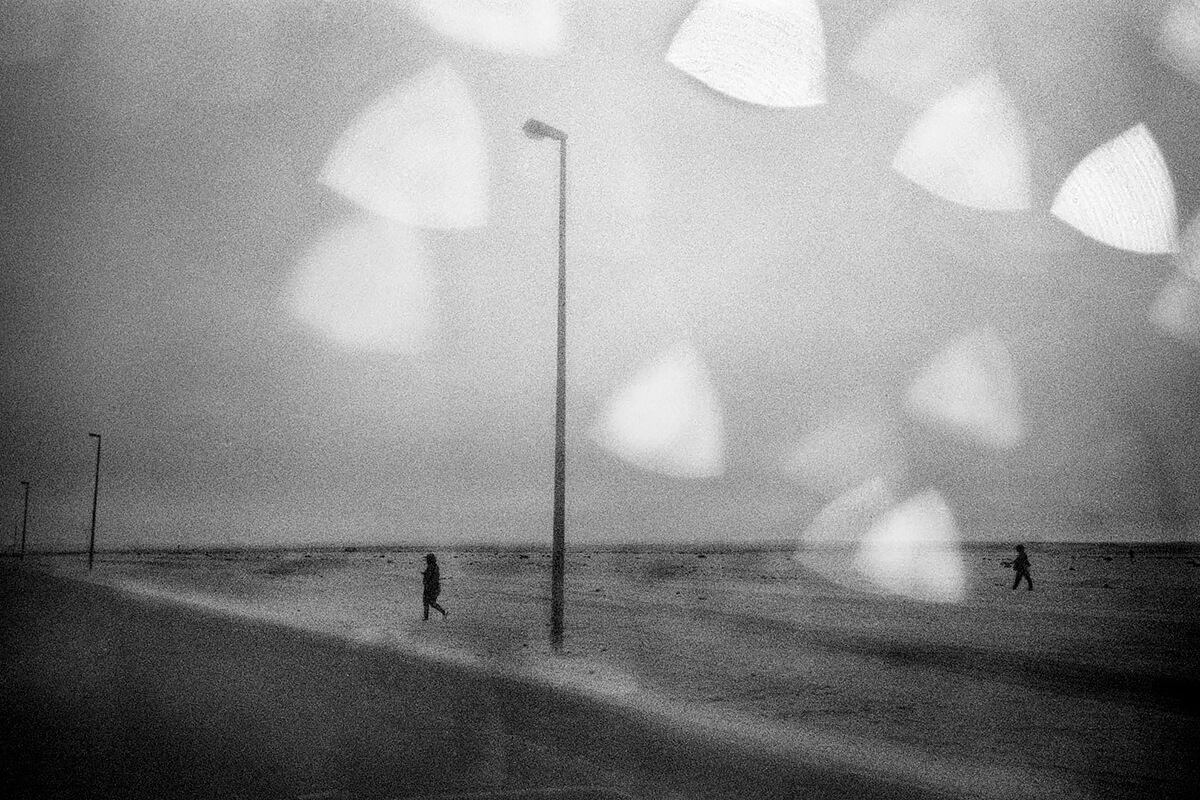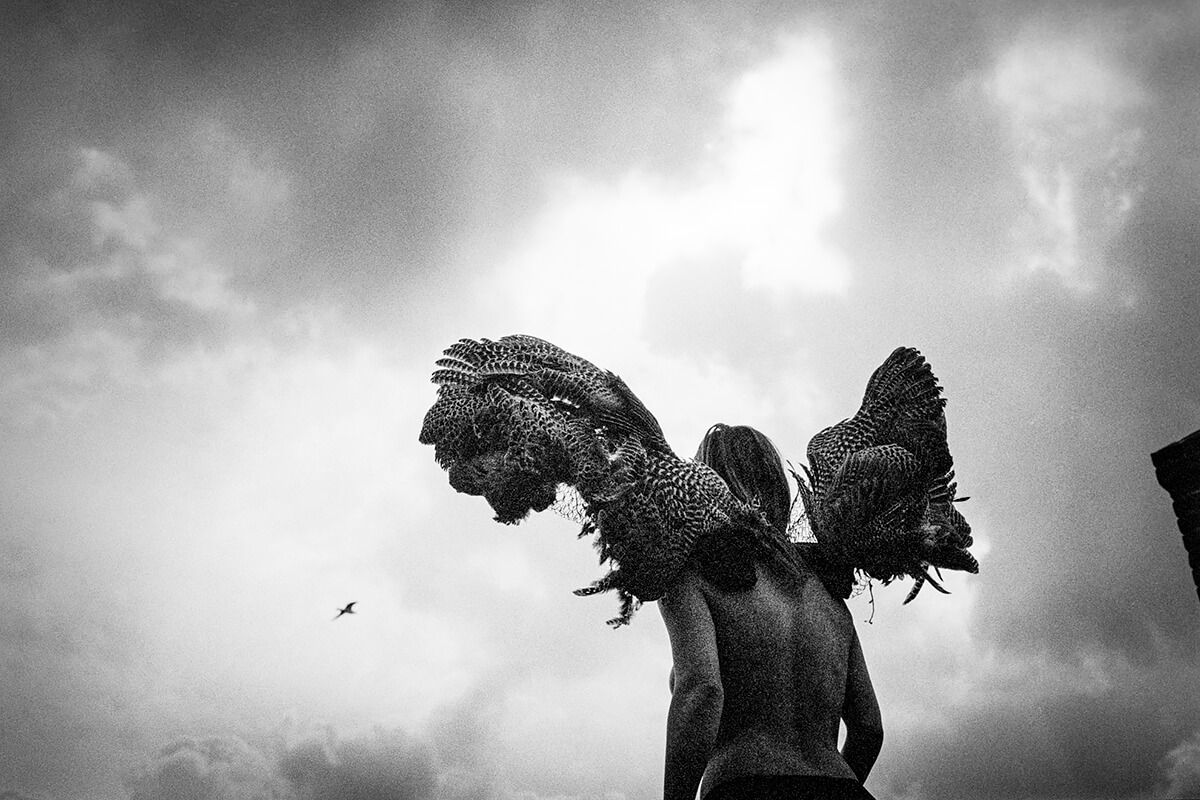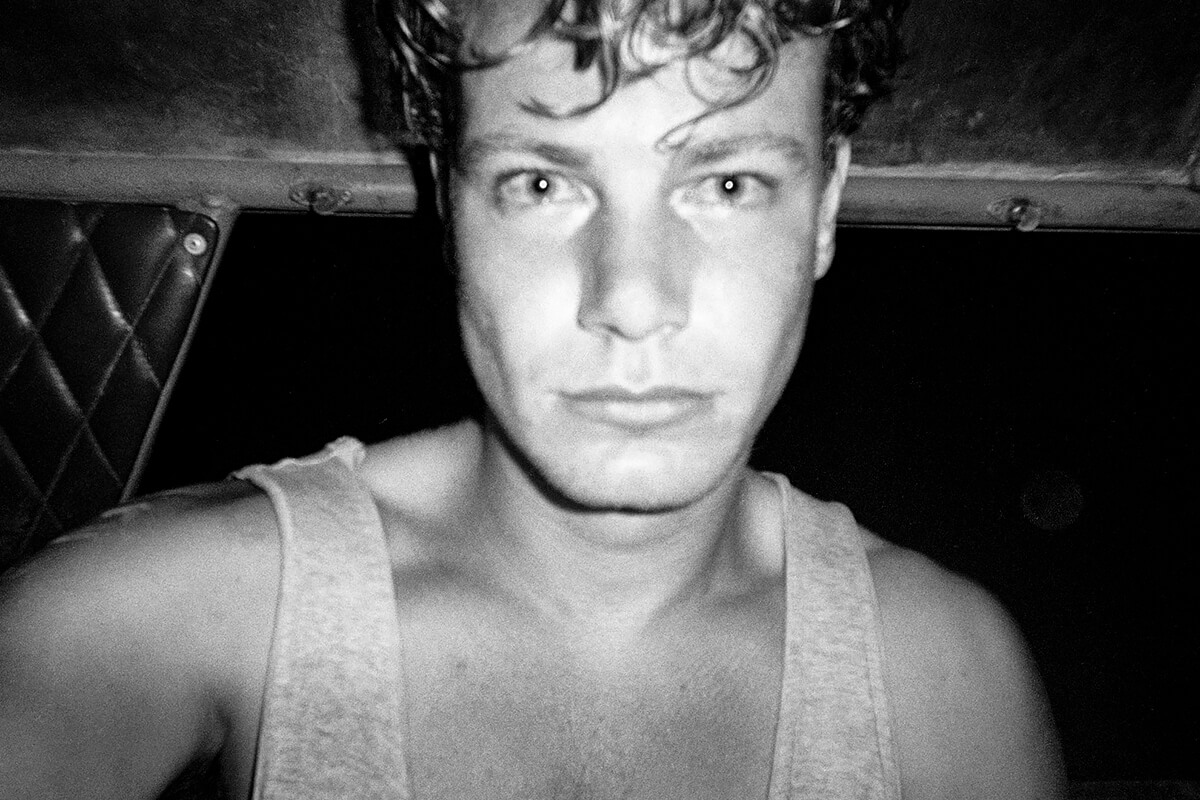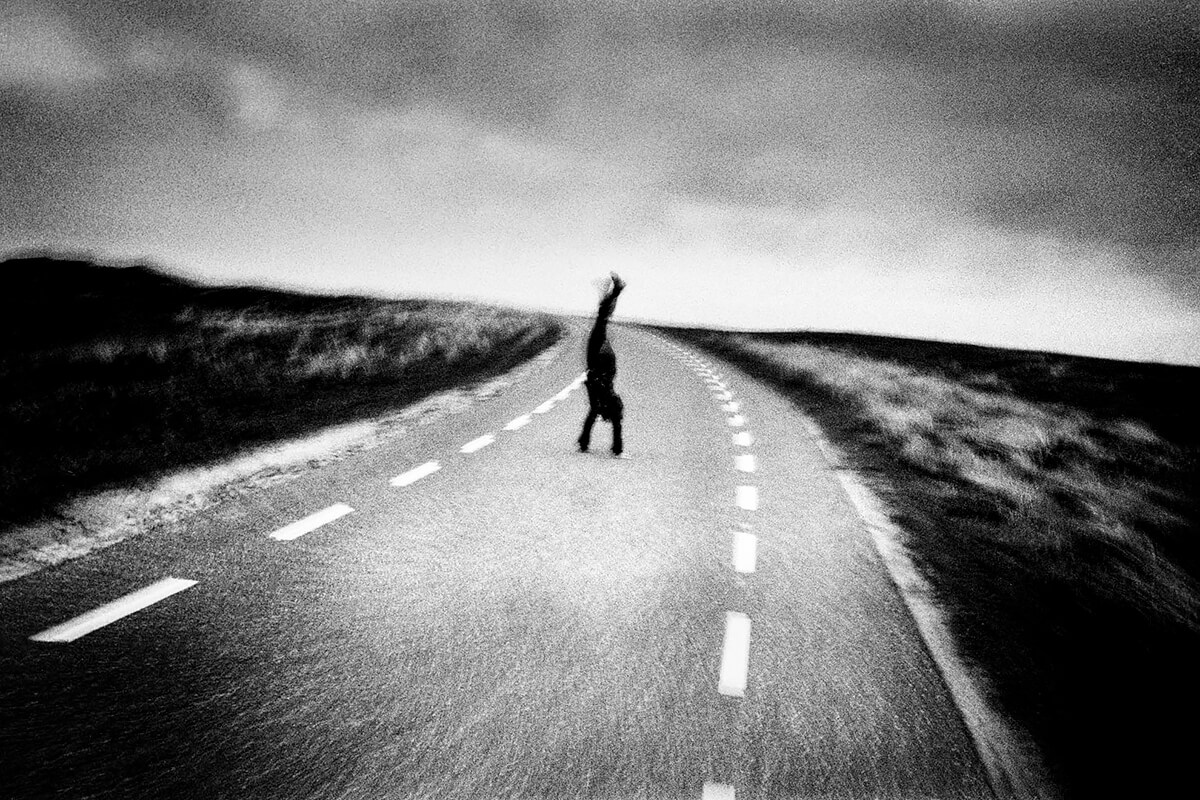In a very short space of time,
Geert Broertjes lost the most important women in his life. His aunt, grandmother and mother passed away. He shared his grief with his girlfriend, who became a recurring theme in this series. But even this relationship ended, a couple of months after his mother passed.
Broertjes photographed the process instinctively. It was only afterwards that he noticed the coherence of his work. It became a poetic story about love, loss and grief.
The beautiful photographs, all shot analogue in raw black and white, reveal the dark feelings he experienced during this intense period in his life.
About One Year
I was thirteen - when I first experienced the feeling of loss. One of my father's best friends had died.The concept of loss was then just an abstraction for me, but I could see how much grief my father was suffering.Three years later, I experienced it again, but this time closer to home. My father had been diagnosed with cancer. Did this mean I was going to lose my father? Was this the end of our family?
I remember that we were in the hospital and the surgeon was explaining what he was going to do during the operation the following day. We're going to cut the stomach open here and then remove the tumour. The next thing I remembered was opening my eyes and finding myself in the bed my father had been in before. They gave me some ice lollies because I had fainted.The operation was a success. My father was pronounced cured.The illness had left our house.
After my internship, I had gone for a beer at Greenmarket Square in Cape Town. My mother rang. She sounded calm and cautious, as though she had been practising the conversation we were about to have. I've got cancer, she said.But it's going to be fine.
Tessel had an old red fire engine that we often drove around in. This photo was taken in IJmuiden.
It's going to be fine. She kept repeating those words, like a mantra.Was she saying this to reassure me; or was it really going to be fine? It's going to be fine. I wanted to believe that so much.The same fears that I had had when I was sixteen came to the surface again. I was scared of losing her.The uncertainty of an illness is killing. It's something you have to learn to live with, otherwise you'd go insane. One of the things the doctors said that I can still remember very clearly was:If a member of the family is ill, the whole family is ill. Unconsciously, your mind is constantly thinking about it, even if you don't want to.
In the period of my mother's illness, I met Tessel. A butterfly that fluttered here and there, turning life into one big party. I fell in love with her instantly. Everything was an adventure and nothing mattered except having fun and enjoying life. For a short while I was able to escape the anxiety of my steadily growing doubts about whether it would all be fine. I was living in two totally different worlds at the same time but didn't realise it. On the one hand, there was the intensity of my mother's illness, which confronted me with the impermanence of life and the thought that she would soon be gone. On the other hand, there was the magic of being in love, young and carefree, not giving a thought about tomorrow and intensely enjoying the moment.That's something we were very good at, grabbing the moments and transforming them into unforgettable memories. As a result, I was able to escape reality, but I wasn't able to change her. For example, one weekend the two of us drove off to Berlin. Completely unprepared, but with a trunk full of romance, we were ready to take on the world. At that moment, my mother was already seriously ill, I couldn't deny that any longer. Somewhere on the way to Berlin, she called me. My grandmother had died. I could tell by her voice that she needed me. Instead of driving back, we continued our journey to Berlin. Grandma was very old, so it wasn't that strange that she should die of old age, I reasoned.That's a natural part of life.
Looking back on it now, I realise I was running away from reality. I didn't want to go back. I didn't want to be confronted with the truth. I didn't understand then what it means to lose your mother...
Jeanet was my mother's elder sister. She was always cheerful, loved the children's series Bassie en Adriaan, was mad about water and swimming, just like me, and believed in Sinterklaas till her death. She also died, only a few months after my grandma. Netje, as we used to call her, had Down syndrome. I was able to justify her death, because when she was born the doctors said she would never live beyond the age of eight. She finally lived to the age of 62. So, every year after her eighth birthday was a present, I reasoned. I didn't understand then what it must have meant to my mother to lose her sister... Your parents are the start of your existence, for me the safest haven I ever knew.
It didn't matter what I did, or if I made the wrong choice while they knew differently. They supported me throughout.There was always someone there to pick me up if I fell. It's a feeling you can only get from your parents: unconditional love. The woman I had loved most my whole life was no longer there. My mother battled against her illness for five long years, until there was no fight left in her. The finiteness of life had become a reality, the carefree existence was no more.
Tessel and Rhea on the roof of her studio on the Passeerdersgracht, Amsterdam.
An emptiness appeared that I wasn't familiar with. I no longer knew what I had to do. I no longer understood the meaning of life. My faith had gone, the future had gone.
In the space of a year, I had lost three important women in my life: my grandmother, my aunt and my mother. And a fourth loss soon announced itself. My relationship with Tessel ended. And so, my last anchor fell away. I felt empty and lost.
I quickly reached a point where I lost myself completely in short-lived relationships and the numbness offered by alcohol and drugs. Anything to temporarily deaden the pain of that total emptiness. I sank to the bottom of my existence.
When you reach rock bottom, there are only two things you can do: you either wallow in it or you try to climb your way back to the top. I began to realise that I was the only person who could pull me out of this hole. I was the only person who could decide how I felt, what I thought, and what my view on life was. Nobody else could do this for me. Slowly, I climbed back up. I began to embrace the pain and to re-build my life.
My mother very much wanted a rock for her tombstone. My father, sister and me couldn’t find anything suitable in the Netherlands. So we drove to the Normandy coast in France to look for one there. We finally found one in Ault.
There is no manual that tells you how to cope with grief and loss. It's something intangible, it overwhelms you and takes you along with it. And it's different for everyone, which can make you feel so much lonelier. Once you finally overcome it, it gives you strength and teaches you to accept life as it comes. I now enjoy life more intensely than before. Little things, like how the sunlight sparkles on the water at the end of the day, how you can hear the wind blowing through the leaves in the trees. I now appreciate everything more. I don't think you can ever recover from the loss of a loved one, and I don't want to either. Because as long as you continue to think about that person, he or she will always be there.
As I put the finishing touches to this book, my father has been diagnosed with cancer for the third time.This time it doesn't look too good. It means that I will soon no longer have a safe haven. And before I've had time to take in the news, I myself have to be admitted urgently to hospital.While the specialists discuss my case, I feel the sensation of leaving my body, and from above I am able to observe the scene below, which seems to have nothing to do with me. First my father and then my mother; and now I too have been struck by the illness in its hereditary form. A B film with a disastrously bad script and an ambiguous ending. A film I'm in the middle of as I write.
Just before my mother died, the theatre festival the Parade was on in Amsterdam. Tessel had her own show and my mother really wanted to see it, no matter how ill she was. I took this photo year later at the Parade, with my mother not present.
Now that I am again confronted with death in the case of my sick father, and I myself also experience what it is to have cancer, life has acquired a new meaning for me. I'm even more grateful for what I have. I reflect on what illness and death can bring me and not so much about what they can take from me.This thought has evoked in me feelings of calm and strength that I never felt before. I know now what it's like to lose a loved one, what it's like when a loved one is ill, and what it's like to be ill myself. Ultimately, I will also be able to give this loss a place of its own and it will make me stronger. I choose to look back on all the beautiful, intense, loving moments that I have had, because it is through these that I have become who I am.
I wish to dedicate this book to my father and mother. I am thankful for having had these two most beautiful and most loving people in my life.
Geert Broertjes Amsterdam, July 2019
Tessel at Zorgvlied Cemetery, Amsterdam.
When my mother was ill, I often wandered around in the evening taking photos to clear my head. I took this photo in the Vondelpark, Amsterdam.
One year after my mother past away my father, sister, brother in law and me went on a trip to Namibia. We had hired a 4x4 and gone camping in the wilderness. After crossing a river, we stayed overnight at this spot.
A deserted road in Namibia.
Tessel on the roof of her studio on the Passeerdersgracht, Amsterdam.
The summer after my mother died, I went on holiday to Thailand with two friends.When we were out drinking one night, we got separated. I walked back to the hotel. I saw the sun come up and decided to go to the beach for a while. I saw a dead turtle that had washed ashore. I walked over to it and a feeling of such intense loss and grief suddenly overwhelmed me that. I sat down beside the animal. I sat there crying like a baby until one of my friends came to console me.
Geert Broertjes, To celebrate my 26th birthday, I went to Texel for a weekend with Tessel. I took this photo on our first evening there.
